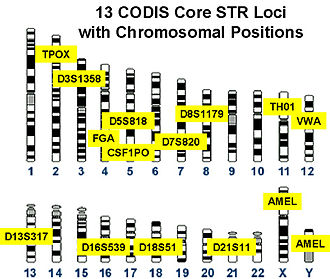Identity testing
Jump to navigation
Jump to search
Identity testing, formally DNA identity testing, is often seen on TV shows. It is used in forensic pathology and surgical pathology.
Technique
- Looks for short tandem repeats in non-coding regions of the genome.
Uses
- Tissue floater.[1]
- Suspected specimen mix-ups.[2]
- Decendent identification - uncommonly used, despite the impression one may have from TV shows.
- Chimerism analysis - post-bone marrow transplantation.[3]
- Source of tumour in a transplant recipient (Question: did the tumour arise from the host's cells or the donor's cells?).[4]
See also
Reference
- ↑ Mosse, CA.; Stumph, JR.; Best, DH.; Vnencak-Jones, CL. (Sep 2009). "A B-cell lymphoma diagnosed in floater tissue: implications of the diagnosis and resolution of a laboratory error.". Am J Med Sci 338 (3): 248-51. doi:10.1097/MAJ.0b013e3181a88dc0. PMID 19745614.
- ↑ Cao, D.; Hafez, M.; Berg, K.; Murphy, K.; Epstein, JI. (Apr 2005). "Little or no residual prostate cancer at radical prostatectomy: vanishing cancer or switched specimen?: a microsatellite analysis of specimen identity.". Am J Surg Pathol 29 (4): 467-73. PMID 15767799.
- ↑ Borrill, V.; Schlaphoff, T.; du Toit, E.; Marx, M.; Wood, L.; Jacobs, P. (Aug 2008). "The use of short tandem repeat polymorphisms for monitoring chimerism following bone marrow transplantation: a short report.". Hematology 13 (4): 210-4. doi:10.1179/102453308X316059. PMID 18796246.
- ↑ Zhang W, Houldsworth J, Schiano TD, Fiel MI (September 2025). "Confirmation of the donor origin of de novo hepatocellular carcinoma after liver transplant using microsatellite analysis". Am J Clin Pathol 164 (3): 492–499. doi:10.1093/ajcp/aqaf078. PMID 40698910.
